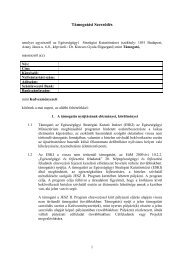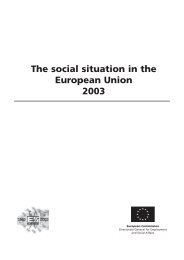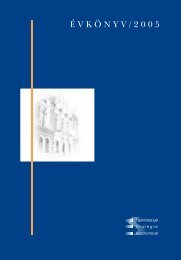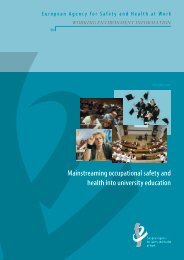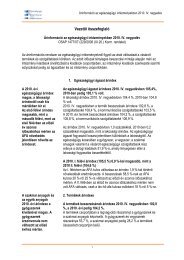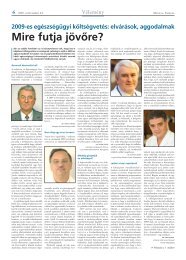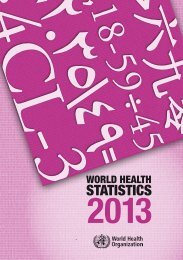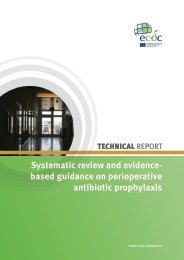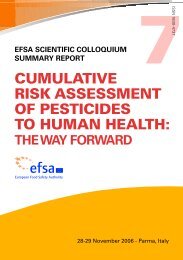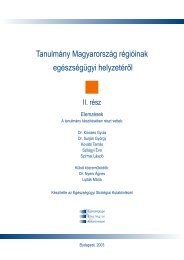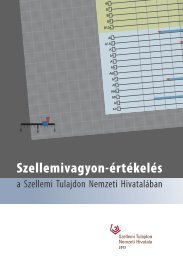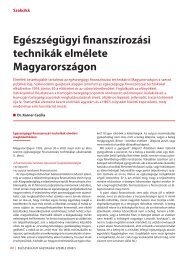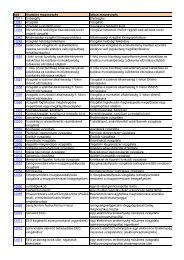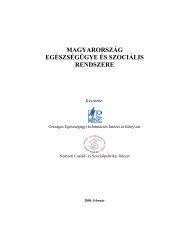WHO Technical Report Series, No. 981 - World Health Organization
WHO Technical Report Series, No. 981 - World Health Organization
WHO Technical Report Series, No. 981 - World Health Organization
Create successful ePaper yourself
Turn your PDF publications into a flip-book with our unique Google optimized e-Paper software.
11. Prequalification of quality control laboratories<br />
11.1 Update on the prequalification of quality control laboratories<br />
The prequalification procedure for quality control laboratories (QCLs) was<br />
originally established in 2004 for Africa only and has since expanded globally.<br />
Any QCL (whether public or private) may now participate in the programme.<br />
Participation is voluntary and 55 laboratories have asked to participate since 2004<br />
(73% being national QCLs). The Expert Committee heard that 24 laboratories are<br />
currently prequalified, with at least one in each <strong>WHO</strong> region. The programme<br />
also includes capacity-building, with training and technical assistance provided<br />
for national QCLs in developing countries.<br />
An informal network of QCLs, which have been prequalified, have<br />
submitted an application for prequalification or have actively participated in<br />
prequalification testing projects or other activities, is currently being set up in<br />
cooperation with a <strong>WHO</strong> collaborating centre in South Africa. The objectives<br />
are to support the quality of laboratory testing within the network, to facilitate<br />
reliable testing of medicines procured by United Nations agencies, and to facilitate<br />
information exchange, networking and work-sharing.<br />
The benefits to QCLs of prequalification include the possibility to provide<br />
testing services to United Nations agencies and other organizations, the recognition<br />
that comes of being listed as a <strong>WHO</strong>-prequalified laboratory, the learning process<br />
of improving laboratory standards, and the possibility of being assisted by <strong>WHO</strong><br />
expert consultants and of participating in <strong>WHO</strong>-organized training. The Expert<br />
Committee heard that countries appreciate having prequalified laboratories in<br />
their own region for the convenience and speed of service that these laboratories<br />
provide.<br />
The Expert Committee expressed its appreciation for the report.<br />
<strong>WHO</strong> <strong>Technical</strong> <strong>Report</strong> <strong>Series</strong>, <strong>No</strong>. <strong>981</strong>, 2013<br />
11.2 Update on <strong>WHO</strong> quality monitoring projects<br />
PQP organizes quality monitoring of medicines projects to monitor the quality<br />
of prequalified products and of medicines procured by United Nations agencies.<br />
It was noted that this contributes to the quality control of medicines in Member<br />
States and to capacity-building through cooperation with NMRAs. The Expert<br />
Committee heard that, in response to a complaint of poor quality, a survey of the<br />
quality of antimalarials supplied within phase 1 of the Affordable Medicines Facility<br />
malaria project (AMFm), which is managed by GFATM, is being conducted. The<br />
evaluation will cover both the product itself and the storage conditions.<br />
The Expert Committee expressed its appreciation for the report.<br />
30



